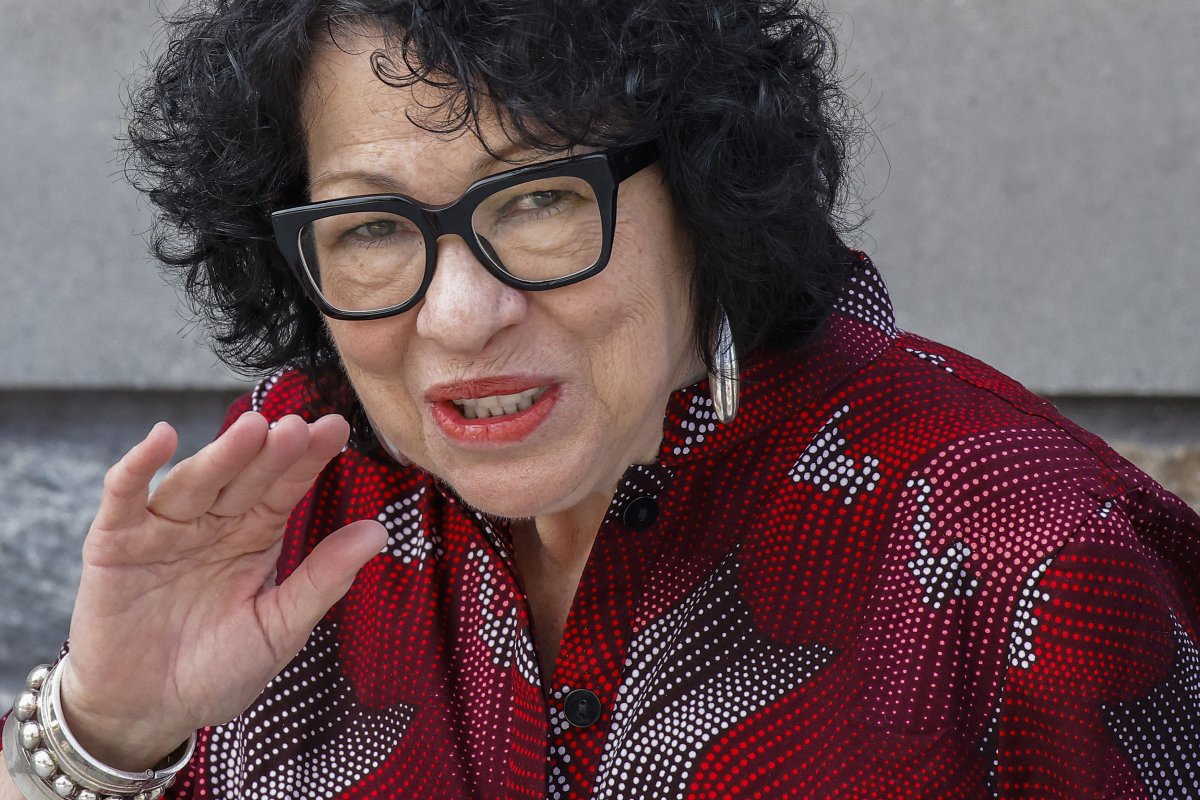Supreme Court Justice Sonia Sotomayor has raised concerns that recent rulings by the court’s conservative majority have jeopardized public confidence in the judiciary.
In her first public comments since President Donald Trump began his second term, Sotomayor renewed her criticism of the court’s decision to grant broad immunity to former presidents, warning that such rulings threaten the court’s credibility.
Why It Matters
In the 6-3 ruling, decided in July by a conservative majority that included three Trump-appointed justices, the Supreme Court established for the first time that former presidents had broad immunity from prosecution.
Sotomayor—whom President Barack Obama appointed in 2009—has argued that the court has moved too quickly in dismantling long-standing legal precedents, making it difficult for the public to maintain trust in the institution.

Eduardo Munoz Alvarez/AP Photo
What To Know
Speaking at an event in Louisville, Kentucky, on Wednesday, Sotomayor pointed to the immunity case as a prime example of the court overstepping its role. She said, “If we as a court go so much further ahead of people, our legitimacy is going to be questioned.”
The associate justice emphasized that Americans do not believe that “anyone should be above the law in America. Our equality as people was the foundation of our society and of our Constitution.”
Sotomayor issued a strong dissent in the immunity case, arguing that the ruling created a scenario in which a president could become “a king above the law.” She reiterated these concerns in Louisville, highlighting that the U.S. Constitution does not exempt a president from facing criminal charges after leaving office.
Beyond the immunity decision, Sotomayor also criticized the court’s broader approach to precedent, saying, “My court would probably gather more public support if it went a little more slowly in undoing precedent.”
She referenced recent high-profile decisions, including the overturning of Roe v. Wade and the ruling that struck down affirmative action in college admissions, as examples of the court moving too aggressively.
What People Are Saying
Supreme Court Justice Sonia Sotomayor said on Wednesday: “I don’t accuse my colleagues of being partisan … [They] genuinely have a belief in a certain way of looking at the Constitution. And I understand, in good faith, that they think that that belief better promotes our democracy. But whether that’s true or not is irrelevant if people are feeling insecure in the changes that they’re instituting at a pace that they can’t absorb.”
Former acting Attorney General Matthew Whitaker said after the immunity ruling in July: “This certainly did not exonerate President Trump or any future presidents from their acts. All it does is essentially create a process pretrial, before the jury hears it, to decide the three buckets. Whether something is a core function official act, whether something is broadly an official act and given presumptive immunity, or … whether it’s a private, unofficial act with no immunity.”
What Happens Next
Sotomayor’s remarks come as the Supreme Court faces increasing public scrutiny over its decisions, particularly on issues related to presidential power and individual rights.
With several politically charged cases still pending, her comments highlight a growing debate over the role of the judiciary and its effect on American democracy.
This article contains reporting by the Associated Press.





